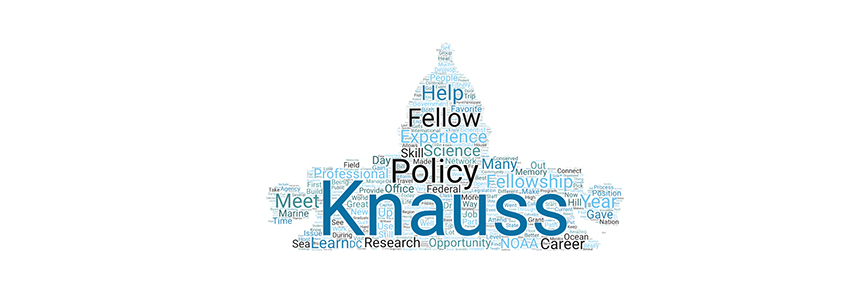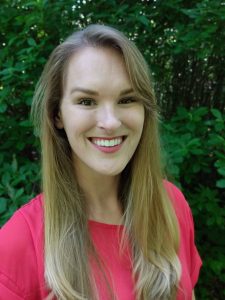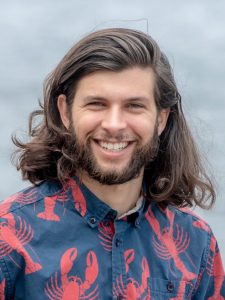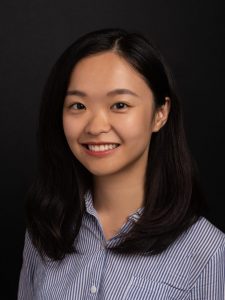Woods Hole Sea Grant Sponsored Knauss Fellows Placed
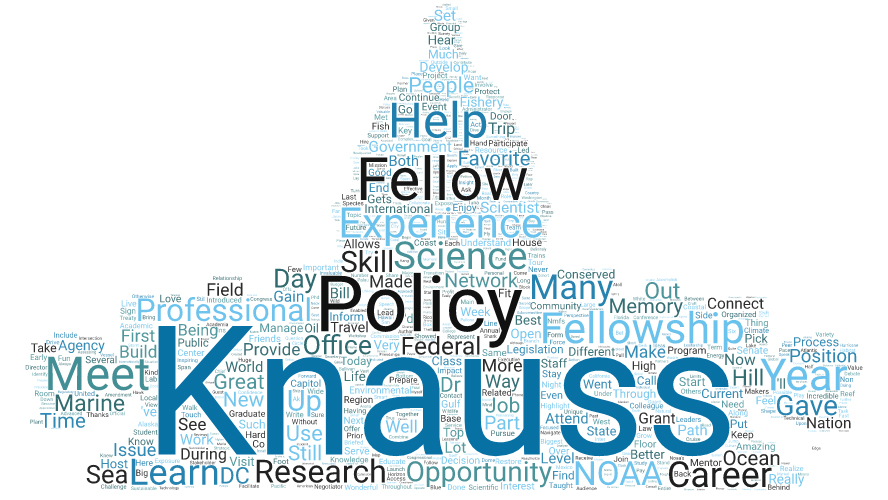
Two candidates sponsored by the Woods Hole Sea Grant program for the 2021 class of the John A. Knauss Marine Policy Fellowship program recently received their placements.
Each year, approximately 70 finalists are selected nationally for the prestigious Fellowship to spend a year in Washington, D.C., working in Congress or the Executive Branch on critical marine policy and resource management issues.
“We are honored to have three Massachusetts-based students selected for this important fellowship,” said Matt Charette, director of the Woods Hole Sea Grant program and a senior scientist at Woods Hole Oceanographic Institution (WHOI). “Our oceans are essential to the health of both our planet and economy. These students have been chosen because they have important roles to play in setting U.S. ocean policy, which will benefit our country for many years into the future.”
The three finalists from the Woods Hole Sea Grant program are:
Suzanna Clark, MIT-WHOI Joint Program
Suzanna is a Ph.D. student in the MIT-WHOI Joint Program in Oceanography. With her co-advisors, Dr. Dennis McGillicudy and Dr. David Ralston, she is conducting research on the physical controls of harmful algal blooms (HABs) in the Gulf of Maine and utilizing data analysis and ocean modeling to research the introduction of a novel HAB species. She earned her B.S. in Environmental Science from UCLA and spent a year as research scientist in Germany studying the impact of offshore wind farms in the North Sea. Suzanna has a strong interest in integrated coastal zone management and effectively translating science into policy. She has been very involved throughout her academic career in leadership within student-run organizations, including as a founding board member and secretary of MIT’s Women in Course XII and part of the Graduate Climate Conference Executive Committee. Suzanna is also committed to communication and outreach as part of good science policy, writing for WHOI’s Oceanus magazine and engaging with school children to help foster the next generation of ocean scientists.
Andrew R. Villeneuve, UMass-Amherst
Andrew is working on his Master’s in Environmental Conservation at UMass-Amherst, researching how the physiology of Atlantic oyster drills, small predatory sea snails, from geographically separate populations differ under a range of water temperatures. Through his work with advisor Dr. Brian Cheng of the Marine Global Change Ecology Lab, Andrew is seeking to understand how populations may evolve over time with climate change and how locally adapted populations of the same species could react to warming oceans differently. Andrew received his B.A. from Bowdoin College, which included a study abroad in Madagascar, an experience that helped shape his understanding of the complexities of managing fisheries and whole ecosystems. Andrew has been an active mentor and leader during his time at UMass, including work at the Gloucester Marine Station and is active in student government, serving as graduate student treasurer. He is looking forward to gaining experience in his fellowship that will blend active research and conservation activities with a strong policy understanding within government or non-profit agencies.
Xinyi Zeng, Boston College
Xinyi is working on dual Master’s degrees from Boston College in Business Administration and Geology. She received a B.A. in Environmental Studies from the College of the Holy Cross and a B.S. from the University of California, San Diego in Environmental System [Earth Science]. Under the guidance of Dr. Noah Snyder, she is currently researching the influence of dams on sediment transport from the Parker River watershed to the Plum Island Sound estuary north of Boston. Xinyi is especially interested in the intertwining of environmental and socio-economic issues and the need for collaborative efforts to address the challenges. She is committed to non-profit work, currently serving as the director of the data services department for the MyH20 Water Information Network, a start-up environmental non-profit tackling drinking water safety issues in rural China. She also was an intern in Beijing at the World Resource Institute, a major international NGO, and a participant in the Alibaba Global Dreamer Program, a leadership development program held by the Alibaba Group to learn about the company culture and operations.
The 2021 finalists are expected to travel to Washington, D.C., this fall to interview with several executive or legislative offices. Following placement, they will begin their fellowship in February 2021.
Since 1979, more than 1,200 Knauss Fellows have received hands-on experiences transferring science to policy and management through one-year appointments with federal government offices in Washington, D.C.
More information is available at seagrant.noaa.gov.
About Woods Hole Sea Grant
Based at WHOI, the Woods Hole Sea Grant program supports research and education, and a marine advisory program in concert with the Cape Cod Cooperative Extension, that encourage environmental stewardship, long-term economic development, and responsible use of the nation’s coastal and ocean resources. It is part of the National Sea Grant College Program of the National Oceanic and Atmospheric Administration, a network of 34 individual programs located in each of the coastal and Great Lakes states.

